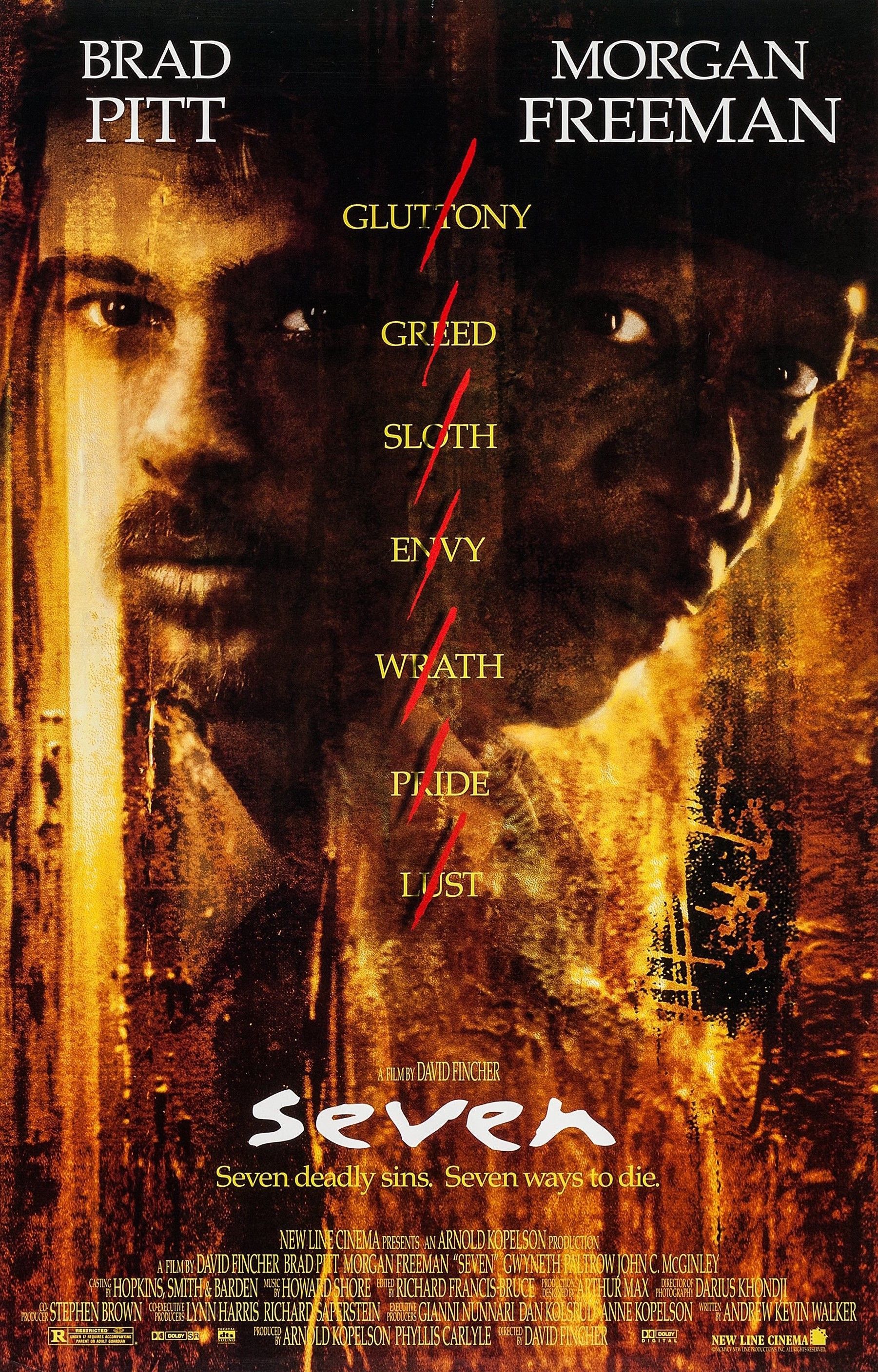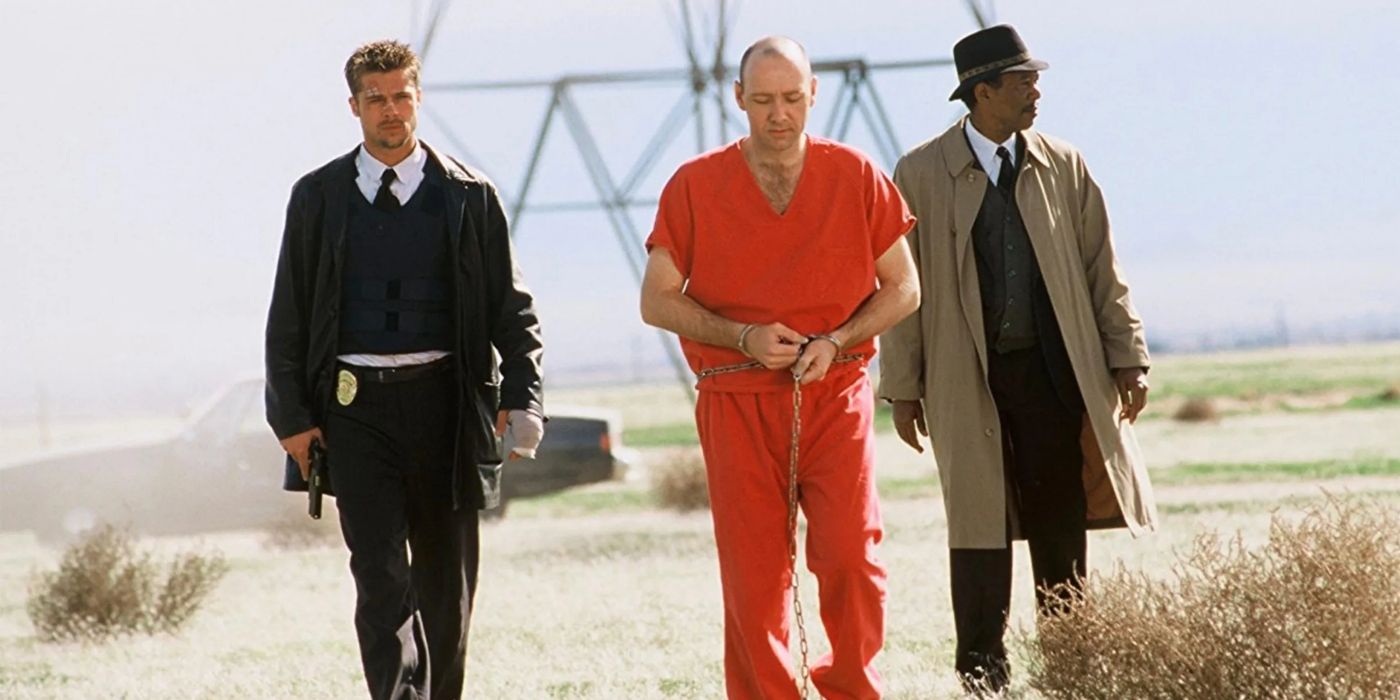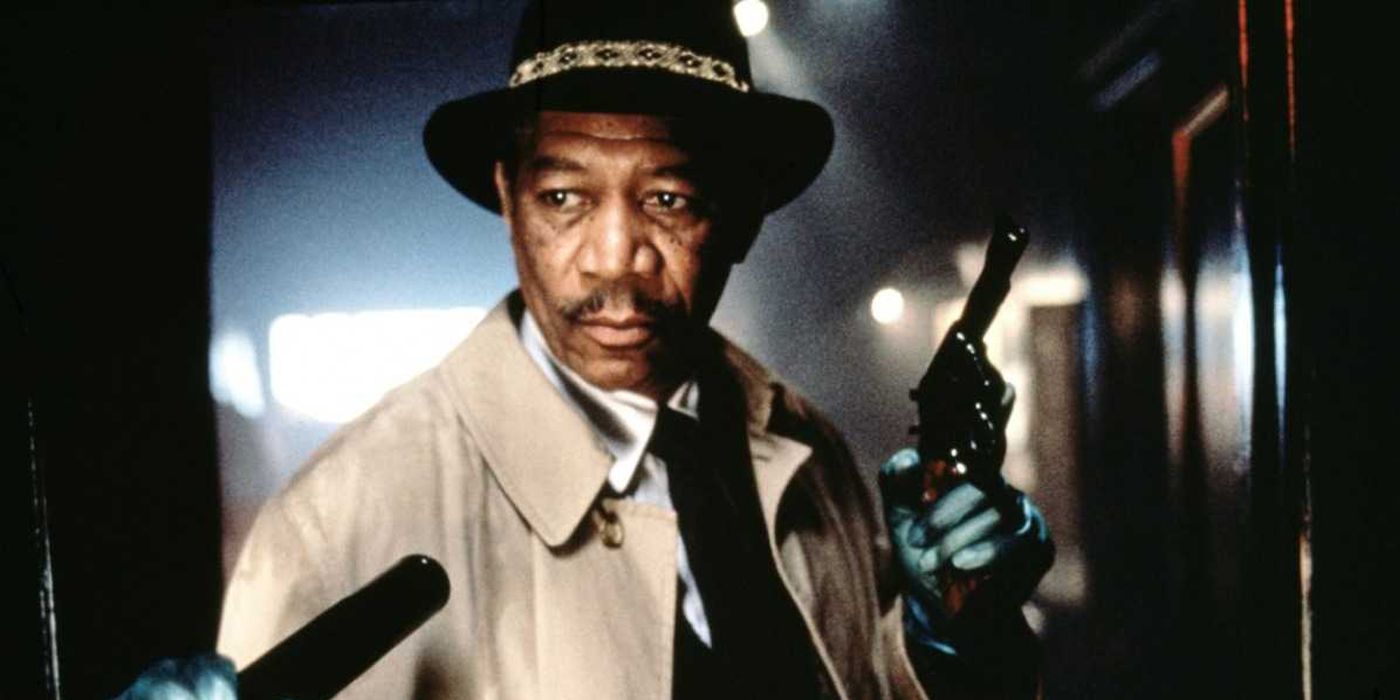Thirty years ago, the mysterious villain in Se7en unexpectedly surrendered to the authorities. Though the police were hunting him, and they seemed to have gathered enough evidence to eventually catch him, John Doe surprisingly arrived at the precinct and gave up. It was a twist that shocked audiences because it felt like a disappointing climax. However, the story was far from over, as detectives Mills and Somerset were far from being in control. After all, there were two sins left, and, per Doe’s arrogant stance, he was going to make sure his circle would be completed. Regardless of the sacrifice of a few more innocent souls.
By 1995, not many thrillers like Se7en had been released. The Silence of the Lambs was a great precursor, and before that The Vanishing and Blue Velvet had delivered perfectly bleak depictions of the darkest version of human nature. David Fincher’s chilling serial killer film destroyed a formula that had been more forgiving and predictable. Serial killers existed, and while some of them had won in the past, the 1995 film showed that victory as something inevitable. In Se7en, John Doe had always remained in power, and the audience, as well as the detectives, were victims of the illusion that the world could be fixed by catching the bad guys.
The film’s visual style is a major feature. Se7en wouldn’t be the same without its murky and depressive atmosphere. But as the film will show you in its final act, the sun eventually comes up in this derelict and rainy city. Unfortunately, this brightness is also associated with a serial killer who surrenders, lifts his bloody hands, and leads the final descent that absolutely everyone failed to notice. It was a slow reveal that paved the way for the thriller genre, one that would be heavily influenced by this not-so-happy ending.
What Is David Fincher’s ‘Se7en’ About?
Se7en takes viewers to an undisclosed city where crime seems to be the rule. The population seems to be deeply disconnected from the violence in the streets, and Detective William Somerset has decided to retire. He just doesn’t want to go on trying to seek justice in a society that seems to feed off itself. His replacement, David Mills, is an emotional family man who has confidence in himself that he can solve the crimes Somerset is used to dealing with.
That is until a series of murders captures their attention. The killer is a merciless maniac who’s incorporating the theme of the seven deadly sins into crime scenes where no decisions seem to be random. Somerset joins Mills in one last crusade to capture the killer before he can complete the seven-murder cycle, but strangely, as they are about to catch him, the serial killer decides to confess his crimes. Per the Rotten Tomatoes synopsis of the film:
When retiring police Detective William Somerset (Morgan Freeman) tackles a final case with the aid of newly transferred David Mills (Brad Pitt), they discover a number of elaborate and grisly murders. They soon realize they are dealing with a serial killer (Kevin Spacey) who is targeting people he thinks represent one of the seven deadly sins. Somerset also befriends Mills’ wife, Tracy (Gwyneth Paltrow), who is pregnant and afraid to raise her child in the crime-riddled city.
John Doe’s Early Appearance Is the Beginning of the End
Se7en is a gritty procedural that puts two clever detectives at the mercy of a brilliant killer whose acts are as intricate as they are meaningful to his cause. The murder scenes are what first stand out about the movie, and after a few shocking twists (the “sloth” scene remains one of the best jump scares in cinema history), the movie becomes a different cat-and-mouse chase. It is about the clues that have been laid down by the clever killer, who confuses everyone into thinking that he made a mistake. But there are no mistakes in Doe’s plan. Even when he surrenders to the authorities, and decides to confess in exchange for the most crucial reveal, it becomes clear that he’s in control.
When Doe speaks to Mills and Somerset inside the vehicle that’s taking him and the detectives to the middle of nowhere per the killer’s request, Fincher teases something so horrific that “people won’t be able to comprehend, but they won’t be able to deny.” Subtly, Doe breaks the fourth wall and looks at the camera while he says this. Again, it is all about the power he exercises over the rest of the world. And he’s really proud of it.
And then the film peels its last layer, revealing the gruesome nature of Doe’s masterplan. We won’t spoil what happens at the end of Se7en, but know that no “gluttony” or “lust” murder scenes will be as sadistic as what Doe achieves in the ending. It is something so horrendous, that primal instinct overcomes whatever logic there is to serving justice. Regardless of where you stand in terms of justice and its controversial ramifications, no one can say that they wouldn’t have at least thought of acting like Mills did.
‘Se7en’ Wasn’t Just Any Serial Killer Thriller, It Was THE Serial Killer Thriller
One of the things Se7en was unjustly criticized for is that it felt manipulative. A few critics said that the final act was not very subtle when making the audience feel like they were falling into a trap crafted by the killer — an emotional overload that just gets heavier as the seconds pass, and viewers realize that things won’t end well. Yes, it is manipulative, but is there a problem with this? Famed critic Roger Ebert said movies are perfect empathy machines, but in the case of Se7en, empathy is inevitable as the end to a fast slide whose beginning has already revealed a pitch-dark conclusion. You don’t want to land there, but you will.
What is a movie but a device designed to make the audience feel something specific? Fincher’s Se7en was heavily influential in the movie genre, which suddenly welcomed different storylines. Films like Saw and series like True Detective owe plenty to Se7en, because they dared to explore a killer’s morally twisted motivations, as dark as they were. Movies are escapism devices, but after Se7en, a thriller didn’t only thrill. It could also trap you and make you feel like you were part of a nihilistic society where John Doe smiled as he turned himself in.

Se7en
- Release Date
-
September 22, 1995
- Runtime
-
127 minutes
Source link



















Add Comment